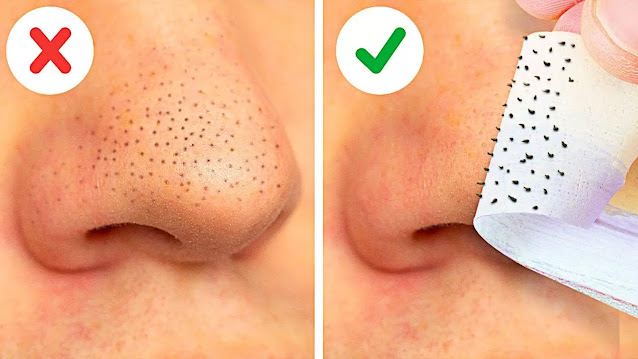Welcome to our video on "What You Need to Know About Acne." Acne is a common skin condition that affects millions of people worldwide, regardless of age or gender. In this video, we'll explore the causes, types, and effective treatments for acne, as well as tips for prevention and management. Let's dive into the essential information you need to know about acne!
1. Understanding Acne:
Acne is a skin condition that occurs when hair follicles become clogged with oil (sebum) and dead skin cells. This leads to the formation of pimples, blackheads, whiteheads, and sometimes cysts or nodules. Acne most commonly appears on the face, neck, back, shoulders, and chest.
2. Causes of Acne:
Several factors contribute to the development of acne, including:
- Hormonal Changes: Hormonal fluctuations during puberty, menstruation, pregnancy, and stress can increase sebum production, leading to acne.
- Excess Oil Production: Overactive sebaceous glands produce too much oil, clogging pores.
- Bacteria: The bacterium Propionibacterium acnes (P. acnes) can grow in clogged pores, causing inflammation and pimples.
- Dead Skin Cells: When dead skin cells are not shed properly, they can mix with oil and block hair follicles.
- Genetics: A family history of acne can increase your likelihood of developing it.
- Diet: Certain foods, such as those high in refined sugars and dairy products, may trigger or worsen acne for some individuals.
3. Types of Acne:
Acne can manifest in various forms, including:
- Whiteheads: Small, white bumps that form when pores are clogged with oil and dead skin cells.
- Blackheads: Open, clogged pores that appear black due to oxidation.
- Papules: Small, red, tender bumps caused by inflamed or infected hair follicles.
- Pustules: Pimples with a white or yellow pus-filled center.
- Nodules: Large, painful lumps beneath the skin’s surface caused by deep inflammation.
- Cysts: Severe, painful, pus-filled lumps that can cause scarring.
4. Acne Myths:
There are several myths about acne that need to be debunked:
- Myth 1: Acne is caused by poor hygiene.
- Fact: Over-washing your face can irritate the skin and worsen acne. Acne is more about internal factors like hormones and genetics.
- Myth 2: Eating greasy foods causes acne.
- Fact: While diet can influence acne, greasy foods are not the direct cause. Each person's skin may react differently to various foods.
- Myth 3: Acne only affects teenagers.
- Fact: Acne can affect people of all ages, including adults.
5. Effective Acne Treatments:
Several treatments can help manage and reduce acne:
- Topical Treatments: Over-the-counter creams and gels containing benzoyl peroxide, salicylic acid, or retinoids can help reduce inflammation and clear clogged pores.
- Prescription Medications: Dermatologists may prescribe topical or oral antibiotics, retinoids, or hormonal treatments like birth control pills or spironolactone.
- Chemical Peels: Professional treatments that use acids to exfoliate the skin and reduce acne lesions.
- Light Therapy: Blue or red light therapy can kill acne-causing bacteria and reduce inflammation.
- Lifestyle Changes: Maintaining a healthy diet, managing stress, and following a consistent skincare routine can help control acne.
6. Skincare Routine for Acne-Prone Skin:
A consistent skincare routine is crucial for managing acne:
- Cleanse: Use a gentle cleanser twice daily to remove excess oil and impurities.
- Exfoliate: Incorporate a chemical exfoliant like salicylic acid to prevent clogged pores.
- Moisturize: Choose a non-comedogenic moisturizer to keep your skin hydrated without clogging pores.
- Spot Treatment: Apply spot treatments to active breakouts to reduce inflammation.
- Sun Protection: Use a broad-spectrum sunscreen to protect your skin from harmful UV rays, as some acne treatments can make your skin more sensitive to the sun.
7. Diet and Acne:
While diet alone does not cause acne, certain foods can exacerbate it. Consider the following tips:
- Reduce Sugar Intake: High glycemic foods can spike insulin levels and worsen acne.
- Limit Dairy Products: Some studies suggest a link between dairy consumption and acne flare-ups.
- Eat a Balanced Diet: Focus on whole foods, including fruits, vegetables, lean proteins, and healthy fats.
8. Managing Stress:
Stress can trigger hormonal changes that worsen acne. Incorporate stress management techniques such as:
- Exercise: Physical activity can help reduce stress and improve mood.
- Relaxation Techniques: Practice meditation, yoga, or deep breathing exercises.
- Hobbies: Engage in activities you enjoy to help take your mind off stress.
9. When to See a Dermatologist:
If your acne is severe, persistent, or affecting your self-esteem, it's essential to seek professional help. A dermatologist can provide personalized treatment plans and recommend advanced therapies that may not be available over the counter.
10. Prevention Tips:
To prevent acne breakouts, consider the following tips:
- Avoid Touching Your Face: Keep your hands away from your face to prevent transferring oils and bacteria.
- Clean Your Makeup Brushes: Regularly clean makeup brushes and applicators to avoid bacteria buildup.
- Use Non-Comedogenic Products: Choose skincare and makeup products labeled as non-comedogenic, meaning they won't clog pores.
- Shower After Sweating: Shower promptly after sweating to remove excess oil and bacteria from your skin.
Conclusion:
There you have it—everything you need to know about acne. From understanding its causes and types to effective treatments and prevention tips, managing acne requires a comprehensive approach. By following a consistent skincare routine, maintaining a healthy lifestyle, and seeking professional help when necessary, you can take control of your skin health and reduce acne.
Thanks for watching! Don't forget to like, comment, and subscribe for more skincare tips and health information. Take control of your acne and enjoy clearer, healthier skin. Stay informed and take care!


No comments:
Post a Comment